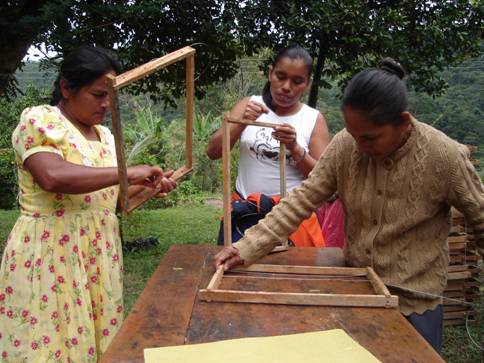Vermont-based Food 4 Farmers is working with the nonprofit investment fund Root Capital to set up smallholder coffee farmers in Guatemala with beekeeping operations.
The groups describe beekeeping as a “micro-enterprise” that has the potential to supplement income for farming families during the thin months. The program is part of Root Capital’s $7 million Farmer Resilience Initiative, a public-private program to help farmers in Latin America fight through the leaf rust epidemic.
(more: The Birds and the Bees: Biodiversity on a Costa Rican Coffee Farm)
If the program succeeds among members of the Maya Ixil coffee cooperative in Guatemala, Root Capital says it will duplicate the model among other cooperatives throughout the Central and South Americas. Here is more from Food 4 Farmers on what assistance the program will provide:
Coop members will first receive comprehensive training in all aspects of beekeeping. With ongoing training and support from the coop’s technical advisors, these newly trained beekeepers will have the tools and know-how to cultivate honey on their own farms, providing an additional household income stream. More than 100 farmers will participate in the program, designed to overcome the typically high rates of attrition and barriers to market access among new beekeepers. The program will help small farmers bring honey products successfully to market, increasing their opportunities for long-term prosperity through income diversification, since income from coffee alone has not been sufficient to put food on the table year round for most small-scale coffee farming families.
While the program is primarily designed to supplement farmers’ income and allow them to continue coffee farming as a means to survive, research also suggests that healthy bee populations can increase coffee yield.
Nick Brown
Nick Brown is the editor of Daily Coffee News by Roast Magazine.







Comment